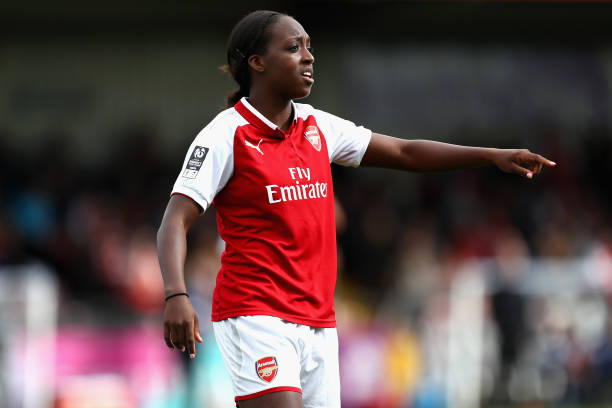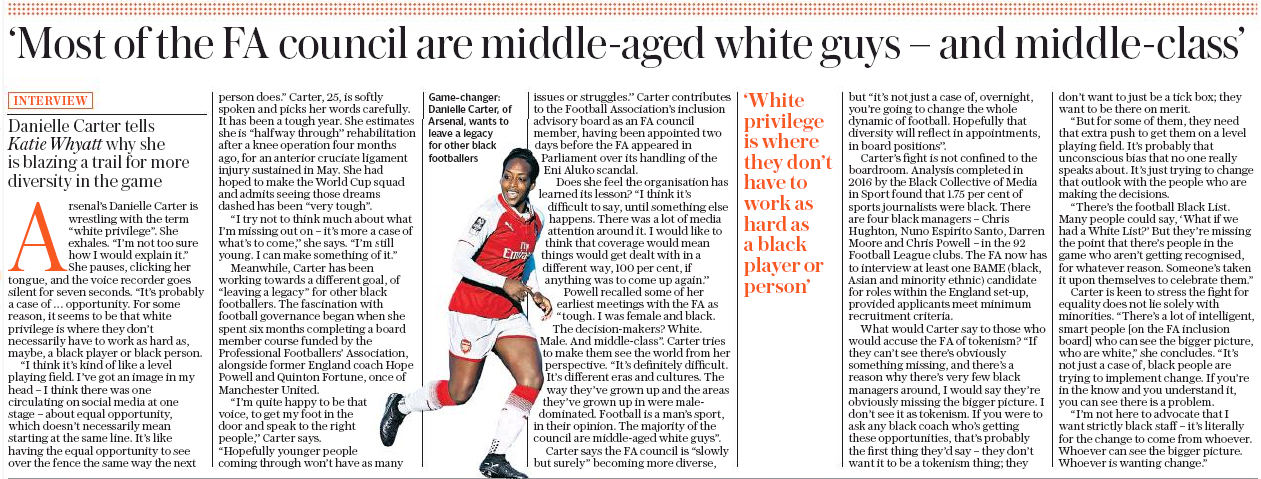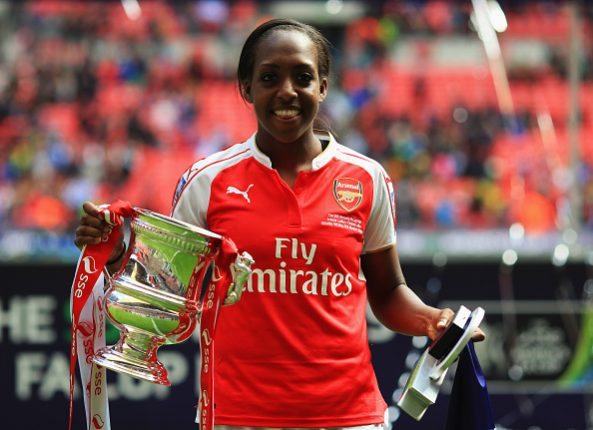Danielle Carter has been sidelined for the past four months following ACL surgery for the injury she picked up in May and she spoke to the Sunday Telegraph this weekend about her recovery and the ‘difficulty’ of the FA’s racial make-up.
Danielle Carter estimates that she is about half-way through her recovery from the anterior cruciate ligament injury that she picked up at the end of last season but she is hopeful that her age means she can make a full and lasting recovery.

“I try not to think much about what I’m missing out on – it’s more a case of what’s to come,” Carter told the Telegraph’s Katie Whyatt. “I’m still young. I can make something of it.”
But it was about her role as a contributor to the FA’s inclusion advisory board that Carter spoke about the most in the interview.
“I’m quite happy to be that voice, to get my foot in the door and speak to the right people,” Carter added. “Hopefully younger people coming through won’t have as many issues or struggles.

“I think it’s difficult to say [that the FA have learned their lesson from the Eni Aluko scandal] until something else happens. There was a lot of media attention around it. I would like to think that coverage would mean things would get dealt with in a different way, 100 percent if anything was to come up again.”

Carter also admitted that the white, middle-class, male make-up of the FA made things ‘difficult’. “It’s definitely difficult,” Carter continued. “It’s different eras and cultures. The way they’ve grown up and the areas they’ve grown up in were male-dominated. Football is a man’s sport, in their opinion. The majority of the council are middle-aged white guys.
“It’s not just a case of, overnight, you’re going to change the whole dynamic of football. Hopefully, that diversity will reflect in appointments, in board positions.
“If they can’t see there’s obviously something missing, and there’s a reason why there are very few black managers around, I would say they’re obviously missing the bigger picture. I don’t see it as tokenism. If you were to ask any black coach who’s getting these opportunities, that’s probably the first thing they’d say – they don’t want it to be a tokenism thing; they don’t want to just be a tick box; they want to be there on merit.
“But for some of them, they need that extra push to get them on a level playing field. It’s probably that unconscious bias that no one really speaks about. It’s just trying to change that outlook with the people who are making the decisions.
“There’s the football Black List. Many people could say, ‘What if we had a White List?’ But they’re missing the point that there are people in the game who aren’t getting recognised, for whatever reason.
“Someone’s taken it upon themselves to celebrate them.”
Carter has been an Arsenal player since she signed for the club in 2009 after making her way through the youth ranks at Leyton Orient. The forward signed a new ‘long-term deal’ in the summer of 2017 and has 28 goals from 98 appearances for the club.

